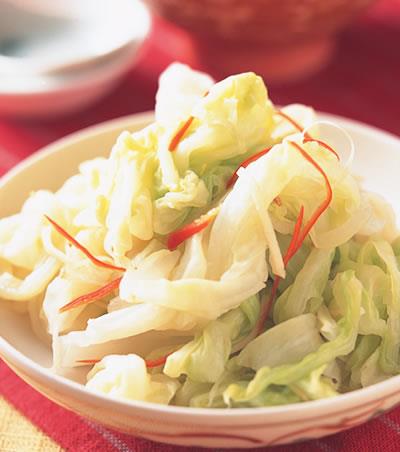The nutritional value of cabbage
Cabbage is a cruciferous plant, its many varieties, such as cauliflower (cauliflower), cabbage (cabbage, cabbage, cabbage), kale, broccoli (green cauliflower), indigo (indigo), etc. are widely used by humans. Edible vegetables. Cabbage is native to Europe and was introduced during the Dutch rule of Taiwan. According to the Japanese, its nutritional value is known as ginseng, and therefore it is also known as the "Korean cuisine."
The Tang Dynasty "Herbal Supplements" also records the benefits of cabbage: "Make up the bone marrow, benefit the five internal organs, benefit the joints, pass through the meridians in the gas, clear eyes and eyes, health, sleep less, benefit heart, strong bones and muscles, to the heart and mind "The ancient cabbage dish is seen as a healthy food with multiple functions." The Nutritionist of Liao Peiyi, the General Hospital of Changji System Hospital, also pointed out that in recent years, cabbage has been widely used as a research and it has been discovered that consumption may bring four major benefits:
Anticancer
The phytochemicals contained in cabbage can be used as important antioxidants and prevention of chronic diseases associated with inflammation, including cancer and coronary artery disease. Its rich anti-oxidant components can enhance the detoxification capacity of the enzyme system in the body, neutralize toxins damage to DNA, and prevent the metastasis of cancer cells.
Improves gastric ulcer
Cabbage is rich in methionine, commonly found in cabbage, lettuce, and axillary buds. In other green plants, this ingredient may help healing peptic ulcers.
Improve blood sugar, blood lipids
Recent studies have found that cabbage shoots may improve the insulin resistance of type 2 diabetes. In addition, a cabbage dish contains about 7.8 grams of fiber, and adequate fiber intake can delay postprandial blood glucose levels and promote blood fat metabolism.
Maintain bone density
Maintaining bone density In addition to calcium and vitamin D, it also requires multiple nutrients to maintain bone metabolism. One of these is vitamin K. Vitamin K is a cofactor that assists in the synthesis of enzymes and calcium-binding proteins and is associated with maintaining bone density. Each 100 grams of cabbage is rich in about 100 to 200 micrograms of vitamin K9, and 100 grams of intake can reach enough intake for a day to avoid vitamin K deficiency.
Since cabbage is abundant in autumn and winter, it is recommended that veins be fine and intact and uncut to avoid loss of nutrients, while green color represents freshness. If the leaves are slightly yellow, they may have been cut for a long time. In addition, you can also buy cabbage when you buy, the louder the sound more representative! If you can not eat it once, it is recommended to use plastic wrap or plastic bag sealed into the refrigerator fresh.

no touch forehead thermometer,professional infrared thermometer,contactless thermometer,no touch infrared thermometer
Shenzhen Urion Technology Co., Ltd. , https://www.urionhealth.com